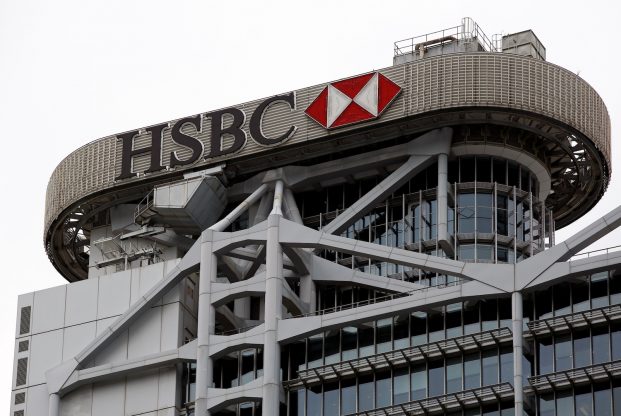US Secretary of State Mike Pompeo on Wednesday renewed criticism of British Bank HSBC for its reported treatment of pro-democracy customers in Hong Kong and said China was “bullying” the United Kingdom.
Pompeo cited reports of Hong Kong-based executives at Next Media being unable to access their HSBC bank accounts and said the bank was “maintaining accounts for individuals who have been sanctioned for denying freedom for Hong Kongers, while shutting accounts for those seeking freedom.”
“Free nations must ensure that corporate interests are not suborned by the CCP (Chinese Communist Party) to aid its political repression,” Pompeo said in a statement.
“We stand ready to help the British government and its companies resist CCP bullying and stand for freedom.”
Representatives for the London-based bank, in an email, declined to comment.
Britain’s Foreign & Commonwealth Office did not immediately respond to a request for comment on Pompeo’s assertion that China was bullying the UK.
HSBC has in recent months faced mounting pressure on both sides of the Atlantic, as it attempts to balance its need to maintain access to the Chinese market with appeasing lawmakers in the United States and Britain critical of Beijing’s handling of the democracy movement in Hong Kong.
Last month, British Foreign Secretary Dominic Raab reprimanded HSBC and other banks for supporting China’s new security law, saying the rights of the people of Hong Kong should not be sacrificed for bankers’ bonuses.
Senior British and US politicians criticised HSBC and Standard Chartered in June after the banks backed China’s national security law for the territory.
Washington has criticised Beijing’s crackdown against pro-democracy opposition in the now Chinese-ruled city following a sweeping new security law imposed on Hong Kong on June 30 that was widely condemned by Western nations.
Hong Kong media tycoon Jimmy Lai, a prominent democracy activist and top executive at Next Digital, was arrested August 10 under the new law, further stoking concerns about media and other freedoms promised to Hong Kong when it returned to China in 1997.
(Reporting by Susan Heavey, Lawrence White and Sinead Cruise; editing by Jason Neely and Steve Orlofsky)






















